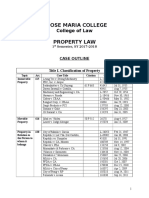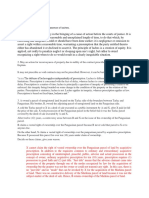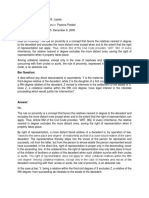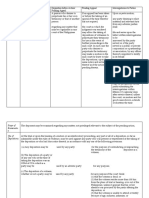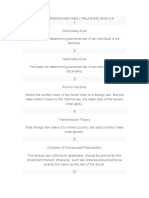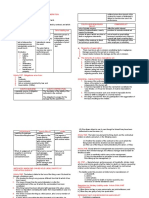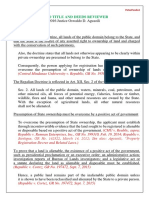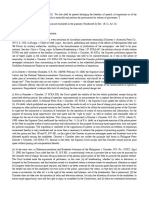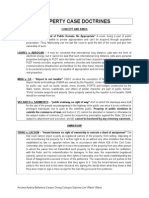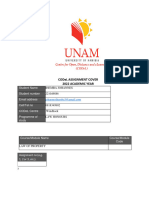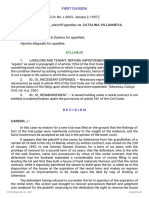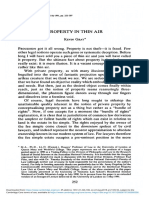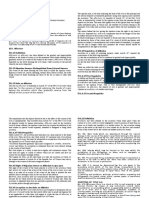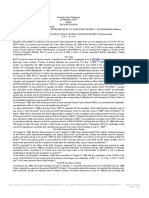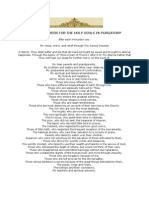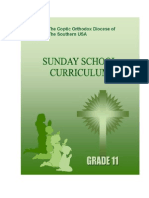0% found this document useful (0 votes)
202 views9 pagesProperty Notes
(1) An action to remove a cloud on title or quiet title to real property may be brought when the plaintiff has a legal or equitable title or interest in the property, there is a cloud on the title due to an invalid or unenforceable instrument, and the plaintiff returns any benefits received from the defendant.
(2) Tax declarations are not conclusive evidence of ownership and only indicate possession for tax purposes. Co-owners' shares of benefits and charges are proportional to their interests unless otherwise proven.
(3) A co-owner cannot convert jointly owned agricultural land into a memorial park without the consent of the other co-owners, as this constitutes an act of alteration requiring unanimous consent.
Uploaded by
Dhustinne BadanaCopyright
© © All Rights Reserved
We take content rights seriously. If you suspect this is your content, claim it here.
Available Formats
Download as PDF, TXT or read online on Scribd
0% found this document useful (0 votes)
202 views9 pagesProperty Notes
(1) An action to remove a cloud on title or quiet title to real property may be brought when the plaintiff has a legal or equitable title or interest in the property, there is a cloud on the title due to an invalid or unenforceable instrument, and the plaintiff returns any benefits received from the defendant.
(2) Tax declarations are not conclusive evidence of ownership and only indicate possession for tax purposes. Co-owners' shares of benefits and charges are proportional to their interests unless otherwise proven.
(3) A co-owner cannot convert jointly owned agricultural land into a memorial park without the consent of the other co-owners, as this constitutes an act of alteration requiring unanimous consent.
Uploaded by
Dhustinne BadanaCopyright
© © All Rights Reserved
We take content rights seriously. If you suspect this is your content, claim it here.
Available Formats
Download as PDF, TXT or read online on Scribd
/ 9

